Our thanks to Lenora Rain-Lee Good for reading the title poem from her new book, The Bride’s Gate and Other Assorted Writings. The text is below and is followed by a short interview about the poem.
The Bride's Gate
The outer gate of
curlicues, finely wrought of iron,
interlock one upon the other,
painted a soft, warm green,
they beckon, “Welcome.”
The gate allows errant breezes to pass
through the thick stone wall.
Hinges, rusted, are swung
only for entrance of a new bride.
Frightened, alone,
she meets her husband
for the first time
within the garden, having
passed through the second,
inner gate; the bride's gate,
as closely fashioned
in opposing pattern
of straight bars tightly grilled,
painted dark, forbidding brown.
No light or laughter
escapes these gates.
Only the breeze
her prayers
her ashes.
About this poem: Inspired by a painting of a gate on a cement brick wall, The Unfound Door, at the Community Bridge in Frederick, Maryland.
I knew it was a painting, I could see the concrete blocks on which it was painted, but I walked very slowly to the gate so I wouldn't frighten the bird and bonked my nose when I looked through the gate. Sigh. Originally published in Marking the Hours: A Collection of Poems by the author, 2020
Dixiane: When I read this poem, I sense a culture not of this world. Perhaps from Jibutu’s world. Or is it purely metaphoric?
Lenora: Dixie, you’re correct. I saw the painting several years ago, on a trip back east, probably about the time I was reading the Thieves’ World books of short stories created by Robert Lynn Asprin and writen by several of the top science fiction writers of the day. It was a shared universe of the various writers, who had to follow the bible provided. As I recall, any writer could use any character, but could not make a life-changing event with another character. Anyhow, in reading the poem today, and the dark short story I wrote at the same time with the same title (makes it not easy to find in the computer), I’m almost positive it was set, more or less, in the area of Sanctuary, the city known as Thieves’ World.
By the way, my two favoritest saloons or bars, are The Vulgar Unicorn in Sanctuary (do not visit unless well-armed) and Callahan’s Crosstime Saloon (A fictional saloon created by Spider Robinson). You don’t need weapons there, just money and fresh batteries for your hearing aids. And a willingness to listen to some marvelous stories.
Dixiane: As someone who writes novels, short stories, and poetry, what determines your choice? Why do you prefer poetry?
Lenora: What determines my choice? Truly, that’s a good question, and I wish I could give you a good answer. I don’t know if this will make sense to your readers or listeners, but the story dictates what it wants to be. I just have to shut up and listen to M’Lady Muse, then do what she tells me. Why do I prefer writing poetry over writing novels? Because I’m old, and don’t know how many years, or days, or hours, I have left, and I can finish the first draft of a poem in an hour or less. The first draft of a novel takes a bazillion hours, plus or minus. Poems rewrite in considerably less time. I still write the now and then short story, but again, poetry is my medium of choice—when M’Lady Muse grants me a choice.
Dixiane: I know that I often go back to my writing and tweak individual words. Finding the exact word must be something that poets obsess about. How do you know when a poem is “done” and ready to fly from the nest?
Lenora: My favoritest nonfiction book is Wordhippo.com. Okay, it’s not a book, that would be my thesaurus, but Wordhippo.com is quicker, larger, and on my computer. Yes, poets do obsess over the perfect word, and there are times that obsession carries over into prose. A poem, I’ve been told by those poets who are better than I, is never truly done. It finally reaches a point where it can be abandoned. Somewhat like a child reaching majority and going off on his or her own. However, if it shows up on my screen at any time after said abandonment, it’s liable to be tweaked here, maybe there. Just like the child who shows up on my doorstep is liable to have a meal fixed, hair finger-combed, whatever.
What do you take from your poetry to your other forms of expression? OR How does your poetry influence your writing in other formats?
A love of words, of language. I don’t necessarily do it with consciousness aforethought, but I have been told more than once that my novels are quote lyrical end quote. I’m not sure if they mean the meter of my sentences, the chosen words, the dialog—I’ve never asked, I’ve just been extremely proud of the compliment. The people who told me that are well known fantasy writers I respect immensely.
Poetry is about emotion. I try to carry that emotion into my prose, whether it’s a short memoir or a longer novel. I don’t write much in metaphor. Metaphor and I got off to a bad start when I was in 8th grade. We read a poem, “Oh Captain! My Captain!” by Walt Whitman. My guess and faulty memory tell me it was to have been our introduction to metaphor. Unfortunately, our teacher didn’t make it to class that day, and we had a substitute. She was horrid, and ruined poetry for me for years. Anyhow, she asked what the poem was about, and I raised my hand and told her it was about a sea captain who died. She promptly shut me down and told me I was wrong, it was about the death of President Lincoln, the Captain of our Country. Whoa! Any idiot could read the poem and know otherwise. By the time she explained it, if she did, I’d tuned her out. Never liked her after that.
So, my poetry contains little metaphor. I tend to write narrative, “free verse” poetry, telling a story. What I tell is what it is. There may be some metaphor, but if so, it is, I assure you, purely accidental, and if the reader doesn’t get it, that’s fine. I probably didn’t, either.
I’ve also been told I write “spare,” in other words, I don’t go in for long descriptions. If you want to know what color the under garments of the heroine are, how her hair is arranged, how many jewels of what colors she wears, how her outer garments are arranged, how the humidity, or lack thereof, affect her, etc., etc., etc., read someone else. Unless any of that information propels the story, I tend to leave it out, whether prose or poetry.
Yes, my friend, I can see your eyes roll, and hear you mutter things about Lenora and her made-up words, that we who know better should set an example for the writers just starting out, and should you or should you not mention my additional “est” to good and favorite?? Ah, go ahead and mention it, and hear me laugh. For I do agree with you, completely, with a little on the side. I believe writers should know the difference between lie and lay, all right and alright (even I know there is a difference but can never remember what it is). I also believe American English is a marvelous and fluid language and should not be tied with rawhide strips to old dictionaries and grammars. We have so many words that make it into our lexicon from so many other languages—skosh, hurricane, typhoon, wikiup, sin, hoosegow, milk, that I think we should welcome newcomers, and play with the ones we want to play with. If something is good, fine.
Write the word, but if it’s better than, more than, gooder than, why then, why not say so? Especially if the original meanings are not lost. And if I choose to start a sentence with “And” why not?
Now, if you’ll excuse me, I’m going to finish sharpening my knife, and head over to the Vulgar Unicorn for a glass of that swill they serve the locals. It’s awful. It’s expensive. But the stories I’ll hear…
Lenora granted us another, longer interview about her research for her writing. It, along with all thirteen chapters of Dixiane’s novel, Born a Refugee, are available to subscribers to the Writing Women Podcast.
If you have any questions for Lenora, or for any of the Writing Women, please feel free to drop us an email member@writingwomen.com. We welcome all comments or suggestions. Are you a writer who would like to be featured in one of our newsletters? Just let us know.

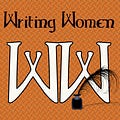

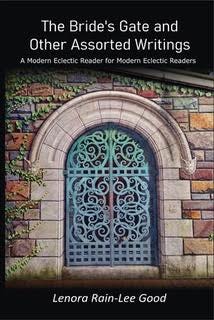



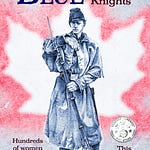
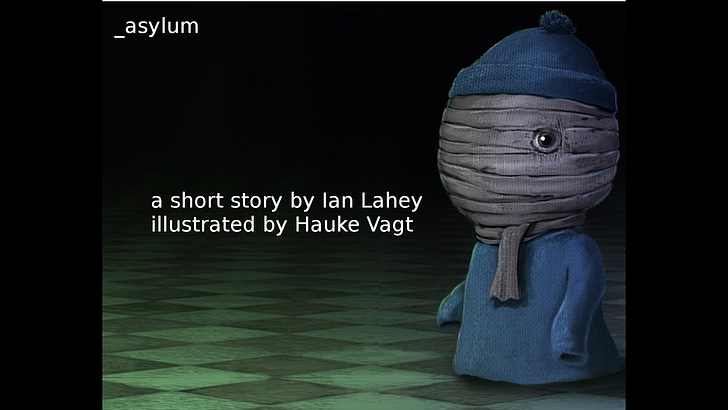

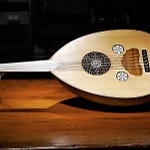
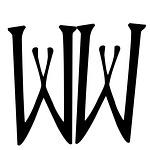
Bride's Gate: an author reading